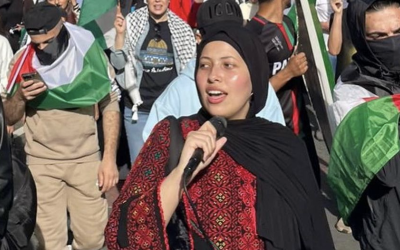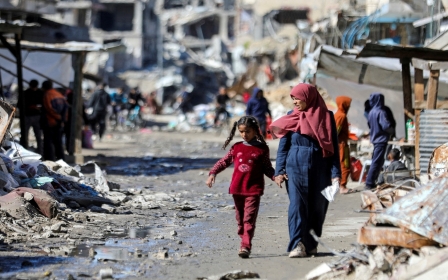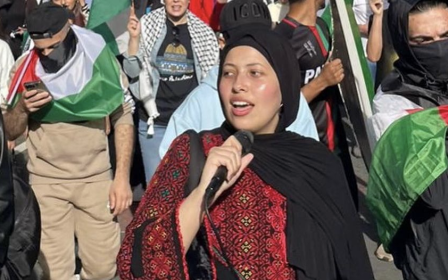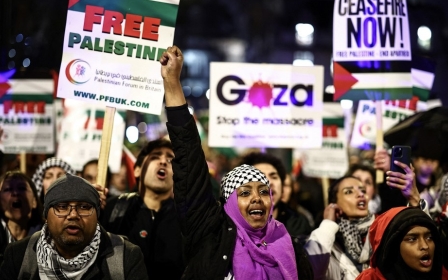British-Palestinians struggle to help families trapped in limbo after fleeing Gaza
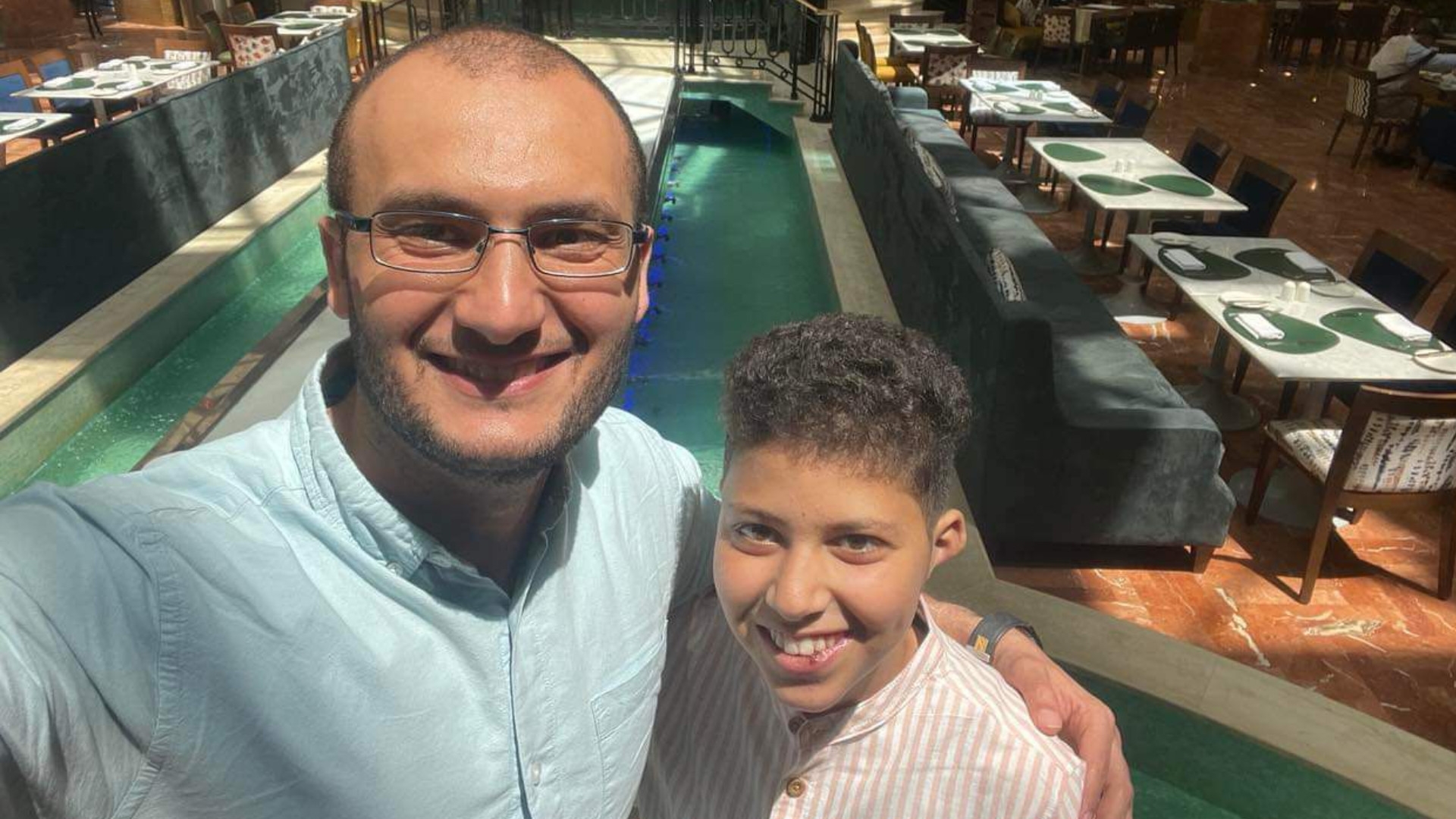
On 15 March, Yousef Alkhatib’s home in Nuseirat, central Gaza was targeted by a missile strike, killing his father, mother, brother, sister in law and five children.
Amer, Alkhatib’s 13-year-old nephew, was the only family member to survive the blast. He escaped with a skull fracture, a brain haemorrhage and severe burns to his face, requiring skin grafts.
Amer was evacuated by the charity Children not Numbers to a hospital in Ismailia, west of the Suez Canal.
Alkhatib, a Palestinian resident in the UK, is struggling to bring him over to the UK, but there is no existing visa route for him to do so, as he is not Amer’s father.
Lacking a Ukraine-style visa scheme, Palestinians resident in the UK wishing to reunite with their family must apply through existing family reunion visa routes, which are prolonged, costly and often exclude siblings, parents of adult children and extended family.
New MEE newsletter: Jerusalem Dispatch
Sign up to get the latest insights and analysis on Israel-Palestine, alongside Turkey Unpacked and other MEE newsletters
Alkhatib has hired a lawyer to make Amer’s application, submitting reams of documents to support his case. However, once it is submitted they must endure a protracted wait for a decision from the Home Office.
'All of his family have been killed. So is he supposed to live by himself?'
- Yousef Alkhatib
“All of his family have been killed. So is he supposed to live by himself?” Alkhatib said.
“Its unimaginable that we would keep this kid in Egypt for two or three months just waiting for the Home Office’s decision,” Alkhatib told MEE.
Should Amer’s application be rejected, he will either have to live in Egypt on his own, or return to Gaza.
“It’s unreasonable for a 13-year-old child to live by himself or to [go] back to Gaza, where all the memories and all the suffering will keep visiting him each night…which will make his life actually unbearable,” Alkhatib said.
In exile
Shahd Abusalama, a British-Palestinian academic at Sheffield Hallam University, came to the UK in 2014 to study.
She applied for British citizenship in 2016, and was finally awarded it in June 2023.
Throughout these seven years, Abusalama could not get a visa for her parents to visit, not even for her graduation ceremony, despite having a visa support letter from her university.
“They missed every event in my life, and I missed every event in theirs,” Abusalama told MEE.
“It felt like I was in exile, and forced to separate with my family who were locked in besieged Gaza. I was unable to visit them, they're unable to visit me and I'm surviving between here and there.”
'I was hoping that finally I would become more of a human with a British document but I continue to face the same dehumanisation'
- Shahd Abusalama, British-Palestinian academic
Not long after Israel’s current war on Gaza began, Abusalama lost 22 members of her family in an Israeli air strike on Jabalia refugee camp on 22 October.
She managed to get her immediate family out of Gaza last month after paying hefty fees, raised through crowdfunding, to an Egyptian travel agency. Her parents are now in Barcelona, and her siblings and nieces in Egypt. Her extended family are still trapped in northern Gaza.
Abusalama has tried to bring them to the UK, but, despite her citizenship status, she has been unsuccessful, as her parents and siblings are not considered “immediate” family under Home Office guidelines.
She wrote to her local MP multiple times about her case, receiving only generic responses.
“I was hoping that finally I would become more of a human with a British document but I continue to face the same dehumanisation,” she said.
"My parents and my siblings could have died in Gaza...they are my immediate family. They are my only family."
Stuck in the system
Prior to a ruling at a UK court in April, Home Office guidelines required applicants to enrol biometric information at a Visa Application Centre (VAC) before submitting a visa application. As Gaza’s VAC is closed, the nearest is in Cairo, which is impossible for many Palestinians in Gaza to reach.
The court ruling found that the Home Office’s refusal to consider visa applications without prior biometric enrollment was "irrational and unreasonable", and in breach of the European Convention on Human Rights (ECHR).
But for many Palestinians trying to flee Gaza, this ruling only allows them to overcome the first hurdle in a torturous and labyrinthine application process.
“There's a lot of people who are really desperately wanting to be reunited with family members, but the process is so arduous even if you are applying from Egypt and didn't apply from Gaza,” Juliane Heider, a solicitor for the Islington Law Centre told MEE.
While the Home Office gives standard timeframes for the application process, they do not specify a set timeframe for individual applications.
“Our experience is that these kinds of applications can easily be stuck in the system for many months,” Heider said.
She explained that even in cases in which highly expedited timeframes were achieved, clients whose applications started six months ago have still not got final outcomes.
For many Palestinians, staying in Egypt indefinitely is not an option.
Palestinians who have arrived in Egypt without a visa are granted permission to stay for 72 hours. This can be extended, but not in all cases, with people granted varying lengths of time depending on their gender and age.
A painstaking process
For Heider, UK immigration guidelines for family reunification are too restrictive and do not take into account expansive family ties for many Palestinians.
“What we see from our cases is that family relationships in Gaza are quite different. You might have an aunt or uncle who is a bit like a parent, or, you might be an older sibling looking after younger siblings,” she said.
“It doesn’t fit into a western way of thinking about families, and that’s where people are running into difficulties.”
Palestinians seeking to be joined by extended relatives have to make visa applications on the basis of Article 8 of the ECHR which protects the right to family and private life.
Applicants need to pass a legal test demonstrating not “more than the normal emotional ties” to the family member, a degree of dependency.
There isn’t a direct rule under the immigration rules under which applications can be made, and so there isn’t one form or any one place where the process and the requirements are written down.
“It doesn't compute that when the situation is so acute, that the process and evidence requirements won’t change,” Heider said.
“It's very frustrating because there is a way to use the law and what we're trying to do is operationalise what exists, but the process requires painstaking work and a lot of energetic input in terms of what it asks of the people in it, and also in terms of how long it takes them, and what the outcomes would be.”
On 13 May Parliament will debate a petition calling for the UK Government to introduce a scheme that would allow Palestinians from Gaza to reunite with their families in the UK.
The petition was supported by the Gaza Families Reunited Campaign, a grassroots campaign calling for the UK government to introduce a Gaza Family Scheme that would offer sanctuary for Palestinians with UK-based family members.
Middle East Eye delivers independent and unrivalled coverage and analysis of the Middle East, North Africa and beyond. To learn more about republishing this content and the associated fees, please fill out this form. More about MEE can be found here.


